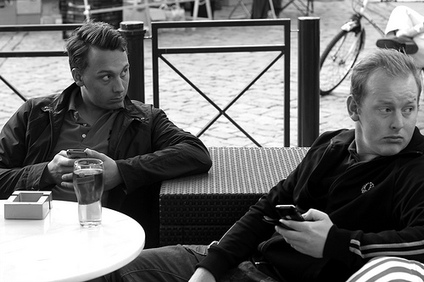Smartphones are changing real world privacy settings
A friend of mine texted me from her dumbphone to ask how I liked my iPhone, because it’s time for her to upgrade. Ironically, her dumbphone is less dumb than two of my other friends’ phones: they still, unimaginably, carry flip phones. These are successful, grown men! Yet as smartphones become ubiquitous, it seems privacy is going the way of the flip phone.
According to researchers at Tel Aviv University, the smartphone is challenging privacy, behavioral codes, and the use of public space. Who hasn’t been confused by the woman at the grocery store talking on her bluetooth: “Oh hey, how are you?” … you reply, “Just fine, thanks,” to no response. The research indicates that in spaces formerly considered public meeting points—parks, city squares, public transportation—smartphone users reveal private information and seem unconcerned about bothering other individuals within those spaces. You’re likely going, ugh, I know.
But if you’re a smartphone user, you probably have more tolerance for such violations of established social protocol. For instance, the research showed smartphone users were 50 percent less likely than regular (dumbphone) users to be bothered by others using their phones for private conversations in public spaces.
Are we getting desensitized to phone use? More tolerant? Some would say simply dependent: the researchers found that smartphone users, when asked how they felt when they were without their phones, chose negative descriptors such as “lost,” “tense,” or “not updated.” In contrast, dumbphone users were far more likely to cite positive associations, like feeling free or quiet.
“We are entering a new phase of public and private spaces,” says Dr. Hatuka, who believes that the design of public spaces may need to change in response to this technology, not unlike the ways in which some public areas have been designated as “smoking” and “non-smoking.”
What do you think? Has your notion of privacy changed as you upgrade your phone? Does it mess with your notion of happiness—comparing yourself to others, sacrificing your own privacy?
Image: Some rights reserved by FelixHuth

